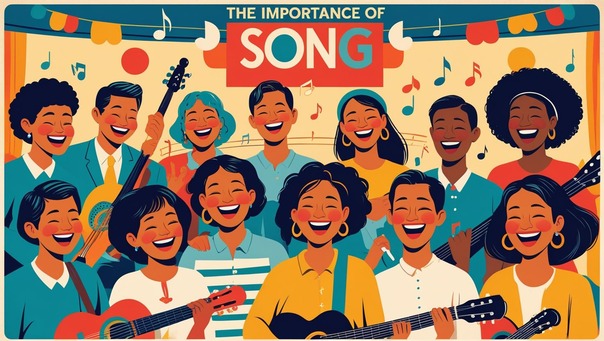The Healing Power of Music: Science-Backed Benefits for Brain, Body & Soul
Discover how music heals brain, body, and soul reducing stress, boosting mood, and easing pain. Explore science-backed benefits and how to use them.
HEALTH & AWARNESS
Tapas Kumar Basu
6/13/20256 min read


Table of Contents
Introduction: The Universal Language of the Soul
The Neurological Symphony: How Music Rewires Our Brain
Emotional Resonance: How Music Regulates Mood and Mental Health
Physical Benefits of Music: Beyond the Sound
The Social and Spiritual Dimensions of Music
Practical Ways to Harness the Healing Power of Music in Your Life
Emerging Research and Future Directions
Conclusion: Embrace Your Inner Maestro for Lasting Wellness
Frequently Asked Questions (FAQs)
References
Introduction: The Universal Language of the Soul
Music is a fundamental thread woven through the human experience a language that transcends words, cultures, and time. Whether it’s the soothing lullaby that calms a baby or the driving rhythm that motivates an athlete, music shapes our emotions and behavior in profound ways. For centuries, music has been used not just for entertainment but for healing, spiritual connection, and emotional expression.
In modern times, science has begun to unravel the complex mechanisms by which music influences our brains and bodies. The emerging field of music therapy and neuroscience reveals how melodies, rhythms, and harmonies can improve mental health, ease physical symptoms, and enhance cognitive function. This article delves deep into the science, explores emotional and physical benefits, and offers practical ways to integrate music into your life for holistic wellness.
The Neurological Symphony: How Song Rewires Our Brain
Dopamine Release and Reward System
Music triggers dopamine release, activating pleasure and reward centers. This response mirrors the brain’s reaction to fundamental pleasures like food, intimacy, or winning a game. A study published in Nature Neuroscience showed that even anticipating a favorite part of a song can activate the brain’s mesolimbic system, resulting in euphoric pleasure and emotional highs.
Prefrontal Cortex and Emotional Processing
Music influences regions related to emotion and memory, helping regulate emotions and form powerful memories. The prefrontal cortex processes and evaluates the emotional tone of music, helping individuals reflect on personal experiences. Music helps us cope with grief, reduce anxiety, and even improve emotional intelligence.
Motor Cortex Activation and Cerebellum
Rhythmic music stimulates the motor cortex, aiding movement and coordination valuable in therapies like those for Parkinson’s disease. The cerebellum, which helps coordinate movement, is activated during rhythmic activities like dancing or clapping to a beat.
Cognitive Enhancement
Music enhances cognitive functions, especially when integrated regularly into daily routines.
Memory Boost: Music helps encode and retrieve memories more effectively. Alzheimer’s patients can recall specific life events when exposed to familiar music.
Attention and Focus: Instrumental and classical music can boost concentration, ideal for studying or working.
Problem-Solving Skills: Learning music strengthens pattern recognition, sequencing, and abstract thinking.
Neuroplasticity and Brain Growth
Long-term music engagement promotes neuroplasticity the brain’s ability to form new neural connections and adapt over time. Studies on musicians show greater grey matter volume in areas related to auditory processing, motor control, and spatial coordination.
Emotional Resonance: Song as a Mood Regulator
Stress Reduction and Cortisol Levels
Calming music lowers stress by activating the parasympathetic nervous system and reducing cortisol levels. Research published in Psychoneuroendocrinology confirmed that music can reduce physiological markers of stress, including heart rate and blood pressure.
Anxiety Alleviation and Relaxation
Clinical trials show that music therapy reduces anxiety in patients undergoing surgery, chemotherapy, or chronic illness treatment. The mechanisms involve distraction, emotional expression, and physiological relaxation. Music offers a safe, accessible method to mitigate anxiety symptoms and improve emotional well-being.
Music and Depression: Emotional Catharsis and Social Connection
Depression often involves emotional numbness and social withdrawal. Music provides a channel for emotional catharsis allowing listeners to experience, process, and release difficult feelings. Group music activities, such as choirs or drumming circles, foster social bonds, which are critical for mental health recovery.
Elevating Mood and Joyful Experiences
Upbeat music stimulates dopamine and endorphin release, elevating mood and generating feelings of happiness. Familiar songs can evoke positive memories, further enhancing emotional well-being. Incorporating joyful music into daily routines can help maintain emotional balance.
Physical Benefits of Music: Beyond the Sound
Music’s healing power extends into physical health, influencing pain perception, sleep, and exercise performance.
Pain Management: Endorphins and Distraction
Music acts as a natural painkiller by triggering the release of endorphins our body’s opioid-like chemicals. Music also distracts the brain from pain signals, reducing subjective pain intensity. This is particularly effective during medical procedures, childbirth, or chronic pain conditions.
Improved Sleep Quality Through Relaxation
Sleep disorders are common worldwide. Studies indicate that listening to soothing music before bedtime improves sleep onset latency, duration, and quality. Music’s calming effect helps regulate breathing and heart rate, preparing the body for restorative sleep.
Enhanced Exercise Performance and Motivation
Up-tempo music increases endurance, improves coordination, and elevates mood during workouts. The rhythm entrains movement, making exercise feel easier and more enjoyable. Many athletes and fitness enthusiasts use music playlists strategically to boost performance.
Heart Health
Soothing music helps reduce heart rate and lower blood pressure. Classical and meditative music have been linked with improved cardiovascular markers
The Social and Spiritual Dimensions of Music
Music is a powerful social glue and spiritual tool, promoting empathy, identity, and transcendence.
Social Bonding and Empathy Through Shared Music
Participating in group music activities releases oxytocin, the “bonding hormone,” fostering trust and empathy among participants. This shared musical experience enhances social cohesion and emotional connection, valuable in community building and therapy.
Preserving Cultural Identity and Heritage
Music preserves cultural stories, traditions, and values, passing them from generation to generation. Understanding and engaging with music from diverse cultures promotes inclusivity and respect.
Spiritual Connection and Mindfulness
Music enhances meditation and mindfulness by inducing trance-like states and deep focus. Chanting, hymns, and mantras across spiritual traditions use music to facilitate connection to higher consciousness and inner peace.
Communication for Non-Verbal Individuals
Music therapy provides a vital means of expression for individuals with speech or cognitive impairments, such as autism or stroke survivors. Through rhythm, melody, and movement, non-verbal individuals can communicate and engage meaningfully.
Actionable Strategies: Your Personal Soundtrack to Well-being
1. Curate Purposeful Playlists
Create different playlists for different moods and purposes:
Focus: Lo-fi beats, ambient soundscapes, or instrumental jazz
Relaxation: Classical, nature sounds, soft acoustic
Exercise: Upbeat pop, rock, or electronic
Mood Support: Songs that reflect or shift your emotions
2. Practice Mindful Listening
Engage with music intentionally. Sit quietly, close your eyes, and tune into the tempo, instruments, and emotional tone. This form of active listening deepens emotional impact.
3. Sing for Your Health
Singing improves lung capacity, stimulates the vagus nerve (which controls stress), and lifts your mood. Even humming can slow your heart rate and relax your body.
4. Learn an Instrument
Playing an instrument offers a full-brain workout. It improves hand-eye coordination, memory, and emotional expression. It’s also a great mindfulness practice.
5. Integrate Music into Routines
Morning: Use energizing tracks to start the day with positivity
Work: Focus-enhancing music to improve productivity
Evening: Wind down with soothing tunes for better sleep
6. Explore Professional Music Therapy
Certified music therapists work in hospitals, schools, rehab centers, and private clinics. Music therapy helps with conditions like PTSD, autism, stroke recovery, and chronic pain.
7. Attend Live Music Events
The communal aspect of live music improves mood, fosters belonging, and provides emotional release. Sharing music with others strengthens bonds and creates lasting memories.
8. Dance to Music
Movement synchronized with music enhances physical and emotional well-being. Dancing releases endorphins, reduces stress, and improves coordination and cardiovascular health.
Emerging Research and Future Directions
Recent advances in neuroimaging and genomics are uncovering even more about music’s impact on brain plasticity and gene expression. Studies suggest music may influence immune function and epigenetic markers linked to stress resilience. Integrating music with other therapies could enhance treatment for neurological disorders, PTSD, and chronic diseases.
Conclusion: Embrace Your Inner Maestro
From calming anxiety and alleviating pain to boosting cognitive function and building stronger social connections, music’s transformative power is undeniable. Across cultures, generations, and belief systems, music has always been more than just sound it’s been a source of connection, comfort, and healing.
As you weave music into your life with intention whether singing in the shower, relaxing to your evening playlist, or learning a new instrument you’ll tap into a scientifically backed, soul-nourishing resource. Rediscover your personal harmony. Let music heal you one note at a time.
Frequently Asked Questions (FAQs)
Q1. How does music reduce stress?
Music activates the parasympathetic nervous system and lowers cortisol levels, promoting relaxation and reducing physiological stress responses.
Q2. Can music improve memory?
Yes, music stimulates brain regions involved in memory formation and retrieval, aiding learning and recall.
Q3. What types of music are best for sleep?
Slow tempo, calming instrumental or nature sounds are most effective for improving sleep quality.
Q4. Is singing beneficial for mental health?
Absolutely. Singing increases endorphins and serotonin, improving mood and reducing anxiety.
Q5. Can music therapy help with chronic pain?
Yes, music therapy is clinically proven to reduce pain perception and improve coping strategies.
Q6. Is there an ideal duration for listening to music daily?
Listening to music for at least 15–30 minutes a day can deliver significant benefits for mood, focus, and stress reduction, but the ideal duration may vary based on individual needs and lifestyle.
Q7. Can music help with ADHD or focus issues?
Yes, structured music especially instrumental or rhythmic tracks can improve focus and attention in individuals with ADHD by providing a predictable sensory input that minimizes distractions.
References
Chanda, M.L., & Levitin, D.J. (2013). The neurochemistry of music. Trends in Cognitive Sciences.
Salimpoor, V.N., et al. (2011). Anatomically distinct dopamine release during anticipation and experience of peak emotion to music. Nature Neuroscience.
Thaut, M.H., et al. (2005). Rhythmic auditory stimulation in gait training for Parkinson’s disease. Movement Disorders.
Bradt, J., & Dileo, C. (2009). Music therapy for anxiety reduction. Cochrane Database.
Hyde, K.L., et al. (2009). Musical training shapes structural brain development. Journal of Neuroscience.
Hole, J., et al. (2015). Music as a pain management tool: a systematic review. Pain Management.
Harmat, L., et al. (2008). Music improves sleep quality in older adults. Journal of Advanced Nursing.
Saarikallio, S., & Erkkilä, J. (2007). The role of music in adolescents’ mood regulation. Psychology of Music.
Terry, W.J., et al. (2012). Music therapy for depression and anxiety. Arts in Psychotherapy.
Sharda, M., et al. (2018). Music training enhances social skills in autism. Frontiers in Psychology.
Explore fitness, meditation, and healthy living tips.
© 2025. All rights reserved.
